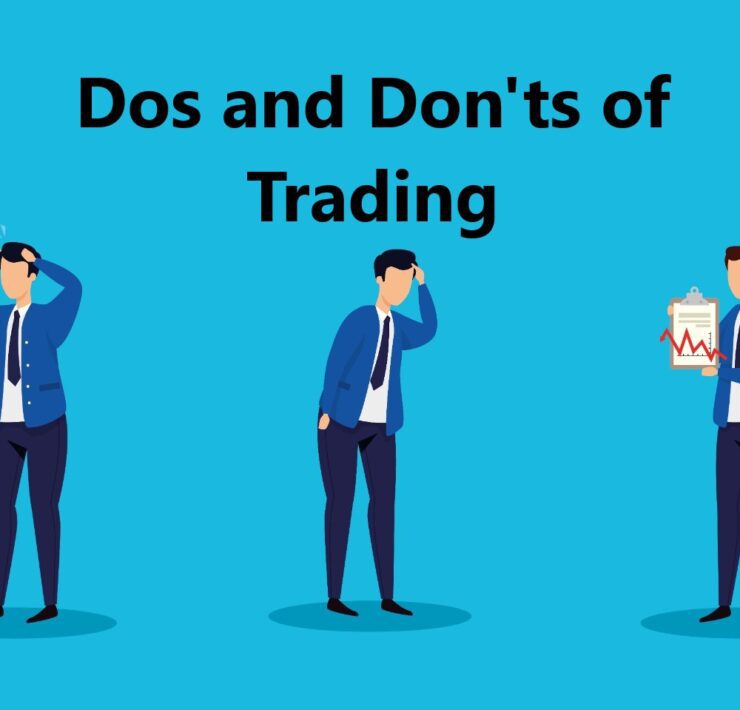While investing, keep emotions at bay
When it comes to investing, the behaviour we exhibit during challenging market conditions is perhaps the largest impediment to our long-term investment success.
We often chase returns, buy and sell short-term, and act on emotions. These easily cloud our judgment; irrational decisions are taken in the fear of missing out on the gains and prejudiced actions are undertaken in the fear of loss.
Behavioural finance explains the psychology of investing and pairs emotions with investments to show how emotions can cause disasters in our investment decisions. It shows that investors are, in reality, emotional, biased, overconfident and myopic, with a distorted concept of their needs. And this behaviour sometimes creates bubbles and seasonal swings.
In stock markets, behavioural finance can help explain situations such as why we hold on to stocks that are crashing or are ridiculously overvalued, why do we jump in late and buy stocks that have peaked in a rally just before the price declines, or why do we take desperate risks and gamble wildly when our stocks descend.
There is an old saying on Wall Street that the market is driven by just two emotions: Greed (in a bull market) and fear (in a bear market). Although this is an oversimplification, it can often be true. We often succumb to these emotions that lead to a profound and detrimental effect on our portfolios.
 Bear markets are distressing and they make us question all our investment decisions. The fear that grips us in such times makes us want to pull money out of stocks and load up on cash. Nobody enjoys watching money vanish, even if it’s only on paper. And looking at the value plummeting week-after-week, we begin to believe that the market will never come back and we’ll never get our money back.
Bear markets are distressing and they make us question all our investment decisions. The fear that grips us in such times makes us want to pull money out of stocks and load up on cash. Nobody enjoys watching money vanish, even if it’s only on paper. And looking at the value plummeting week-after-week, we begin to believe that the market will never come back and we’ll never get our money back.
On the other hand, in a bull market phase, we all think we are smarter than the rest and have learned the secret to get rich quick. Not only do we put our savings and switch our other investments into stocks, we even think of borrowing and investing in stocks, to become the next Warren Buffett. We start believing we possess special market-beating capabilities. This was particularly seen in the bull run India witnessed in 2007. Everyone’s stock recommendation, including a naive investor’s recommendation, was generating exorbitant returns.
In spite of the overvaluations, people thought that the Sensex will zoom to over 30,000 levels and their stocks will keep generating higher returns. But alas, we all know what happened. Markets bombed in late January 2008 and tumbled further in the following months, with Sensex plummeting from a high of 21000 touching lows of 8000.
Just as day follows night and spring follows winter, so does investor psychology follow the seasons of emotions from greed to fear and fear to greed and the cycle continues. Overconfidence in a bull market and despondency in a bear market cloud our judgement, they navigate our investment decisions and rationality loses in the process.
Refer to the chart that sums up typical market emotions through different cycles. We will surely be able to identify with some.

Investor psychology appears to develop through a market cycle and can be seen quite clearly in the history of stock markets throughout the world. These cycles often cause investors to panic and sell or delay investing available funds or hold on to their investments despite their overvaluations. They forget the overwhelming evidence that market timing is far more dangerous to their financial health than is a buy, hold, and rebalance strategy.
So where does the current financial crisis put us? In the cycle of emotions, we are currently somewhere between hope and relief.
In the past few years we have been witnessing huge cut-offs by investors in their stock portfolios. We agree that cash and gold had done better than stocks in past few years, it doesn’t mean that cash will do better than stocks in the months or years ahead. We are already seeing how stock markets have been delivering good returns, while gold as languished (marginally fallen) from its peak.
If there is a time to decide that we have too much money in stocks, it’s in a bull market, not a bear market. Investors who lost money post 2008 crisis have been just selling off their stocks and mutual funds whenever the markets hit new highs. This is understandable, for many are novices and have panicked after seeing their portfolios shrink over 80% when the markets tumbled.
Quite frankly, everyone feels a little edgy when they start losing their money. Every market downturn is scary because the factors behind each are different. People who give professional investment advice should know this.
But we have to be aware of the uncomfortable truth: Unless you’re already independently wealthy, you need to own stocks to meet your long-term investment objectives.
Even if we may have a solid long-term investment plan, we get emotional. But that’s okay. The important thing to remember is ‘just don’t react emotionally’. We must ensure that, whether it is bull market or bear, we need to have an optimal allocation to equities and invest in only fundamentally good companies. Buying on hot tips irrespective of the valuation will only make you lose your money even if you hold the stock for the lifetime.
So what is that we need to understand and learn? What should we do?
We should realise that the bear phase is an opportunity to invest in good companies cheaper valuations. And in every bull run, we should not forget our past failures.
It is important that during a bull run we take time off from the euphoria, hold our emotions, see if valuations are deviating from the fundamentals and accordingly rebalance our portfolios and book profits. It is important to know when to sell. Similarly, it is in bear markets that we get the opportunity to buy companies at good valuations that will benefit our portfolio in the long run.
History has shown that equities has outperformed every other asset class in the long term, so stay invested in the companies with a good future outlook and a sustainable business. Over time, you’ll most likely be rewarded for your courage.
This article was published in DNA and the author is Sr VP of Arihant Capital Markets Ltd (article edited to make it suitable for current situation).







